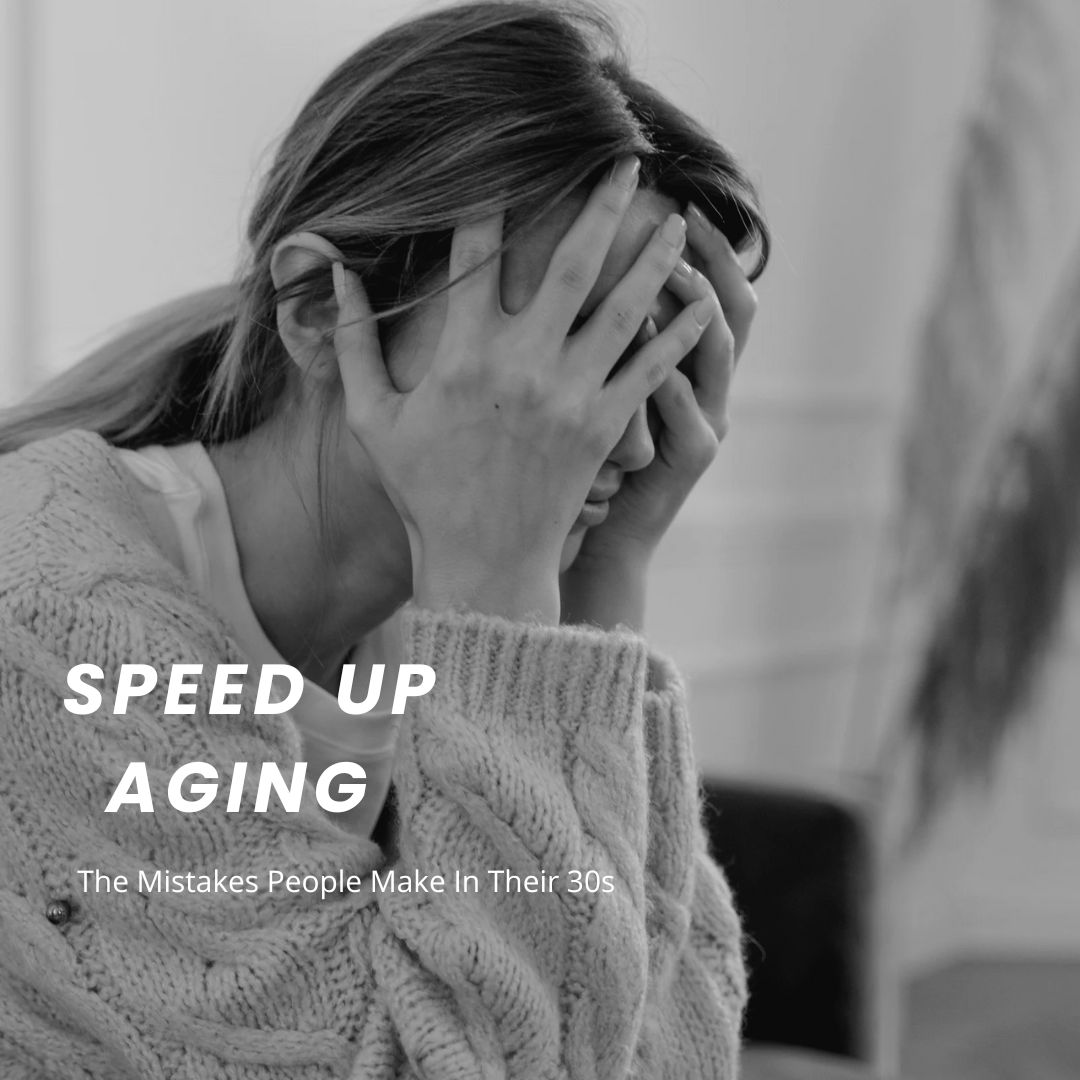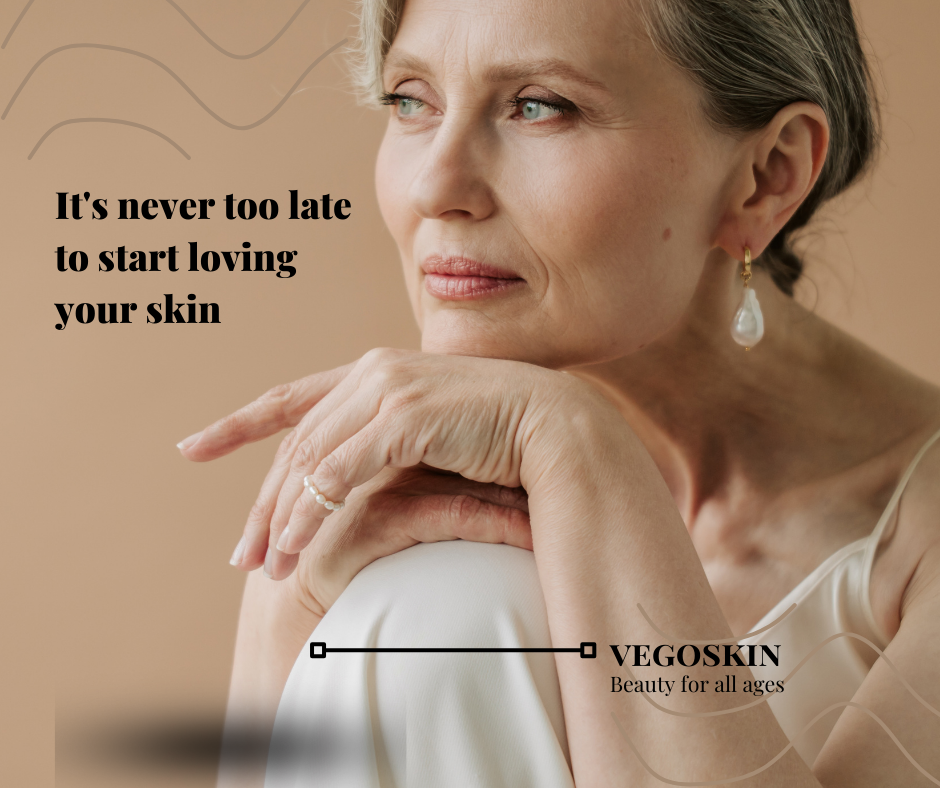The Mistakes People Make In Their 30s That Speed Up Aging
Your 30s are a pivotal decade. It’s a time when you’re likely juggling career ambitions, relationships, maybe even starting a family, all while trying to maintain some semblance of a social life. But amid the hustle, many of us unknowingly make choices that accelerate aging, both physically and mentally. The Mistakes People Make In Their 30s That Speed Up Aging can have long-term consequences, from premature wrinkles to chronic health issues. This article dives into those missteps, offering practical advice to help you course-correct and age gracefully. Let’s explore the habits to avoid and the tools to embrace for a healthier, vibrant future.
Neglecting Skincare: The Foundation of Youthful Aging
One of the biggest mistakes people make in their 30s that speeds up aging is ignoring their skin. By your 30s, your skin’s natural collagen production starts to decline, and environmental damage from years of sun exposure or pollution begins to show. Skipping sunscreen, not moisturizing, or using harsh cleansers can exacerbate fine lines, dark spots, and dryness.
What to Do Instead: Invest in a solid skincare routine. Use a broad-spectrum SPF 30+ daily, even on cloudy days, to protect against UV damage. Incorporate a gentle cleanser, a hydrating moisturizer, and a retinoid (like retinol) to boost cell turnover. For guidance, check out The Skin Cancer Foundation’s sunscreen tips to understand SPF ratings. Tools like the La Roche-Posay Anthelios Sunscreen or CeraVe Hydrating Cleanser are dermatologist-approved staples you can find on Amazon.
Poor Diet Choices: Fueling Aging From Within
Another critical error in the mistakes people make in their 30s that speed up aging is eating a diet high in processed foods, sugar, and unhealthy fats. These foods can cause inflammation, which accelerates aging at a cellular level. Diets lacking in antioxidants—like those found in fruits, vegetables, and whole grains—leave your body vulnerable to oxidative stress, leading to premature aging signs like sagging skin and low energy.
What to Do Instead: Prioritize a balanced diet rich in nutrient-dense foods. Think colorful plates with berries, leafy greens, nuts, and fatty fish like salmon, which are packed with omega-3s. For recipe inspiration, visit EatingWell for anti-inflammatory meal plans. A tool like a Ninja Foodi Blender can make whipping up antioxidant-rich smoothies a breeze—check it out on Best Buy. Also, consider tracking your nutrition with apps like MyFitnessPal to ensure you’re getting enough vitamins and minerals.
Skimping on Sleep: The Silent Aging Accelerator
Sleep deprivation is a sneaky culprit among the mistakes people make in their 30s that speed up aging. Chronic lack of sleep—whether from late-night scrolling, work stress, or parenting—disrupts your body’s repair processes. It can lead to elevated cortisol levels, which break down collagen, causing wrinkles and dull skin. It also impairs cognitive function, making you feel older than you are.
What to Do Instead: Aim for 7-9 hours of quality sleep per night. Create a bedtime routine: dim lights, avoid screens an hour before bed, and consider a white noise machine like the Hatch Restore 2, available on Target. For sleep hygiene tips, the Sleep Foundation offers evidence-based advice. If stress keeps you awake, try meditation apps like Calm or Headspace to wind down.
Sedentary Lifestyle: Moving Less, Aging Faster
In your 30s, a desk job or busy schedule can lead to a sedentary lifestyle, one of the mistakes people make in their 30s that speeds up aging. Physical inactivity weakens muscles, slows metabolism, and increases the risk of chronic diseases like heart disease and diabetes, all of which age you prematurely. Even if you were active in your 20s, neglecting exercise now can lead to sarcopenia (muscle loss) by your 40s.
What to Do Instead: Incorporate movement into your daily routine. Aim for at least 150 minutes of moderate aerobic activity weekly, plus strength training twice a week, as recommended by the CDC. Tools like a Fitbit Charge 6 (available on Fitbit’s website) can track your steps and motivate you to stay active. If gyms aren’t your thing, try home workouts with apps like Peloton or free YouTube channels like Yoga With Adriene.
Overlooking Mental Health: Stress as an Aging Catalyst
Chronic stress is a major player in the mistakes people make in their 30s that speed up aging. The pressures of career, finances, or relationships can spike cortisol levels, which not only ages your skin but also affects your brain, leading to memory issues and anxiety. Ignoring mental health can also lead to burnout, making you feel decades older.
What to Do Instead: Prioritize stress management. Practices like mindfulness, journaling, or therapy can be game-changers. Apps like BetterHelp connect you with licensed therapists online—learn more at BetterHelp. For quick stress relief, try a Theragun Mini for muscle relaxation, available on Therabody’s site. The American Psychological Association has resources on managing stress effectively.
Excessive Alcohol and Smoking: Aging in Fast-Forward
Booze and cigarettes are aging accelerators, yet they remain common pitfalls in the mistakes people make in their 30s that speed up aging. Excessive alcohol dehydrates your skin, depletes nutrients, and damages your liver, while smoking reduces blood flow to the skin, causing wrinkles and a dull complexion. Both habits increase the risk of cancers and heart disease, aging you inside and out.
What to Do Instead: Cut back on alcohol to moderate levels—up to one drink per day for women, two for men, per the CDC’s guidelines. For quitting smoking, resources like Smokefree.gov offer tools and support. Consider swapping cocktails for mocktails using a Cocktail Shaker Set from Williams Sonoma to keep social vibes without the aging effects.
Ignoring Preventive Healthcare: Missing Early Warnings
Skipping regular check-ups is another of the mistakes people make in their 30s that speed up aging. Your 30s are when conditions like high blood pressure, cholesterol, or prediabetes can emerge, often without symptoms. Ignoring these can lead to serious health issues that age you prematurely, like heart disease or kidney problems.
What to Do Instead: Schedule annual physicals and screenings, including blood pressure, cholesterol, and blood sugar tests. Women should also prioritize mammograms and Pap smears, while men should discuss prostate health with their doctor. The Mayo Clinic provides a checklist of screenings by age. Tools like a Withings Smart Blood Pressure Monitor (available on Withings’ site) can help you track vitals at home.
Neglecting Social Connections: The Loneliness Trap
Isolation is an often-overlooked factor in the mistakes people make in their 30s that speed up aging. As life gets busier, friendships can take a backseat, leading to loneliness, which studies link to higher risks of depression, cognitive decline, and even mortality. Strong social bonds are as vital to longevity as diet or exercise.
What to Do Instead: Make time for meaningful connections. Join clubs, attend community events, or reconnect with old friends. Platforms like Meetup can help you find local groups with shared interests. Tools like a Google Nest Hub (available on Google’s store) can make virtual hangouts with distant friends feel more personal. The Harvard Study of Adult Development underscores the link between relationships and long-term health.
Financial Stress: Aging Through Worry
Financial instability is a subtle but powerful contributor to the mistakes people make in their 30s that speed up aging. Constant worry about debt, savings, or retirement can elevate stress hormones, leading to physical and mental aging. Poor financial habits, like overspending or not saving, can also limit access to healthcare or healthy food later in life.
What to Do Instead: Build a financial safety net. Start by creating a budget with apps like YNAB (You Need A Budget), available at YNAB’s site. Contribute to retirement accounts like a 401(k) or IRA, and aim to save at least 3-6 months’ worth of expenses for emergencies. For financial planning tips, visit NerdWallet. A tool like a Rocket Money subscription tracker can help you cut unnecessary expenses.
Over-Reliance on Caffeine: A Temporary Fix with Long-Term Costs
Leaning too heavily on coffee or energy drinks to power through busy days is another of the mistakes people make in their 30s that speed up aging. Excessive caffeine can disrupt sleep, dehydrate your skin, and stress your adrenal glands, leading to fatigue and premature aging signs. It can also mask underlying issues like poor diet or inadequate rest.
What to Do Instead: Limit caffeine to 400 mg daily (about 4 cups of coffee), as advised by the FDA. Hydrate with water—aim for 8-10 glasses daily—and prioritize energy-boosting foods like nuts or whole grains. A Hydro Flask Water Bottle from Hydro Flask’s site can keep you hydrated on the go. For a caffeine alternative, try herbal teas or matcha, which offer antioxidants without the jitters.
Conclusion: Rewriting Your 30s for Longevity
The mistakes people make in their 30s that speed up aging don’t have to define your future. By addressing these habits—whether it’s improving your diet, prioritizing sleep, or managing stress—you can slow the aging process and set yourself up for a healthier, more vibrant life. Small, consistent changes, supported by the right tools and resources, can make a world of difference. Your 30s are a chance to build a foundation for longevity, so take action now to avoid these pitfalls and embrace habits that keep you youthful inside and out.
For more insights on aging gracefully, explore Healthline’s guide to healthy aging or WebMD’s tips for staying young. With the right mindset and tools, you can make your 30s a decade of growth, not premature decline.



